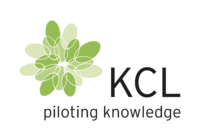The Rise of Nanocellulose in Modern Manufacturing
Nanocellulose has emerged as a revolutionary material in the realm of modern manufacturing. Its unique properties, such as high strength, lightweight nature, and biodegradability, make it an attractive alternative to traditional materials. As industries increasingly seek sustainable and efficient solutions, nanocellulose stands out as a promising candidate.
In recent years, the application of nanocellulose has expanded across various sectors, including packaging, textiles, and even electronics. Its versatility and eco-friendly nature align perfectly with the growing demand for sustainable materials. As a result, manufacturers are exploring innovative ways to integrate nanocellulose into their processes, aiming to enhance product performance and reduce environmental impact.
At KCL, we have been at the forefront of this innovation, leveraging our extensive experience in nanocellulose materials to develop cutting-edge solutions. Our focus on sugar beet pulp-based nanocellulose exemplifies our commitment to sustainability and industrial innovation.
Why Choose Sugar Beet Pulp as a Source?
Sugar beet pulp, a by-product of the sugar industry, presents a sustainable and abundant source for nanocellulose production. By utilising this agro-industrial sidestream, we not only reduce waste but also create value from an otherwise discarded material. This approach aligns with the principles of the circular economy, promoting resource efficiency and environmental stewardship.
The process of converting sugar beet pulp into nanocellulose involves removing lignin and hemicellulose, followed by mechanical fibrillation. This method is energy-efficient and results in a low carbon footprint, making it an environmentally friendly alternative to traditional cellulose sources. Additionally, the mechanical process ensures that the final product retains its high strength and stiffness, essential qualities for various industrial applications.
Choosing sugar beet pulp as a source for nanocellulose not only supports sustainable practices but also offers a cost-effective solution for manufacturers. The availability and affordability of sugar beet pulp make it an attractive option for large-scale production, ensuring a steady supply of high-quality nanocellulose.
Key Benefits of Sugar Beet Pulp-Based Nanocellulose
Sugar beet pulp-based nanocellulose offers several advantages that can significantly elevate your manufacturing process. One of the primary benefits is its ability to enhance the strength and stiffness of paper products. By incorporating nanocellulose, manufacturers can achieve substantial material savings, reducing costs and improving overall efficiency.
Another notable benefit is its application as a natural binder in coating formulations. Nanocellulose can replace synthetic latexes and other barrier materials, providing a more sustainable and eco-friendly alternative. This not only reduces reliance on petroleum-based products but also enhances the biodegradability of the final product.
Furthermore, the use of sugar beet pulp-based nanocellulose can lead to improved product performance. Its high surface area and excellent mechanical properties make it suitable for a wide range of applications, from packaging to textiles. By integrating nanocellulose into your manufacturing process, you can achieve superior product quality and meet the growing demand for sustainable materials.
How KCL Integrates Nanocellulose into Manufacturing Processes
At KCL, we have developed a comprehensive approach to integrating nanocellulose into manufacturing processes. Our unique piloting platform and laboratory services support product development across diverse value chains, ensuring that our clients can fully leverage the benefits of nanocellulose.
We begin by collaborating closely with our clients to understand their specific needs and requirements. This allows us to tailor our nanocellulose solutions to meet their unique challenges and objectives. Our expertise in microfibrillated cellulose (MFC) ensures that we can provide high-quality materials that fulfil the demands of various applications.
Our process involves the careful design and production of MFC from sugar beet pulp, ensuring that the final product meets the highest standards of quality and performance. By integrating our nanocellulose into your manufacturing process, you can achieve enhanced product strength, reduced material usage, and improved sustainability.
Potential Challenges and Solutions
While the benefits of sugar beet pulp-based nanocellulose are clear, there are potential challenges that manufacturers may face when integrating this material into their processes. One common challenge is the need for specialised equipment and expertise to handle nanocellulose. However, at KCL, we provide comprehensive support and consultancy services to help our clients navigate these challenges.
Another potential challenge is ensuring consistent quality and performance of the nanocellulose. Our rigorous quality control measures and extensive experience in nanocellulose production ensure that our clients receive reliable and high-quality materials. We work closely with our clients to address any issues and optimise the integration process.
Finally, there may be concerns about the cost of transitioning to nanocellulose-based materials. However, the long-term benefits, such as reduced material usage and improved product performance, often outweigh the initial investment. Additionally, the use of sugar beet pulp as a cost-effective source further mitigates these concerns.
Future Trends in Nanocellulose Applications
The future of nanocellulose applications is bright, with ongoing research and development driving new innovations. As industries continue to prioritise sustainability, the demand for eco-friendly materials like nanocellulose is expected to grow. Emerging applications in areas such as bioplastics, electronics, and medical devices highlight the versatility and potential of this remarkable material.
At KCL, we are committed to staying at the forefront of these developments, continuously exploring new ways to enhance our nanocellulose solutions. Our focus on sugar beet pulp-based nanocellulose positions us as a leader in sustainable materials, ready to meet the evolving needs of the manufacturing industry.
In conclusion, sugar beet pulp-based nanocellulose offers a range of benefits that can elevate your manufacturing process. From enhancing product strength to promoting sustainability, this innovative material is poised to play a crucial role in the future of industrial innovation. By partnering with KCL, you can leverage our expertise and comprehensive services to fully realise the potential of nanocellulose in your manufacturing operations.
